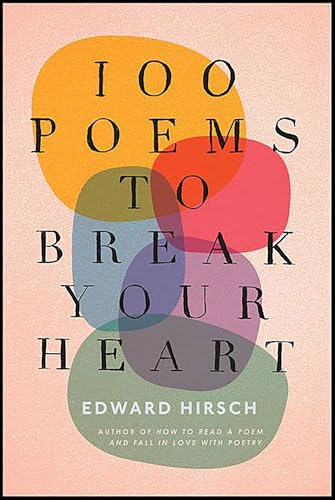
100 Poems to Break Your Heart

Implicit in poetry is the notion that we are deepened by heartbreaks, by the recognition and understanding of suffering—not just our own suffering but also the suffering of others. We are not so much diminished as enlarged by grief, by our refusal to vanish, or to let others vanish, without leaving a verbal record. The poet is one who will not be
... See moreEdward Hirsch • 100 Poems to Break Your Heart
Poetry companions us. Poems are written in solitude, but they reach out to others, which makes poetry a social act.
Edward Hirsch • 100 Poems to Break Your Heart
“The poem is always in your hometown,” he explained, “but you have a better chance of finding it in another.”
Edward Hirsch • 100 Poems to Break Your Heart
“Poetry is a principle of power invoked by all of us against our vanishing.”
Edward Hirsch • 100 Poems to Break Your Heart
But the essential advantage for a poet is not to have a beautiful world with which to deal: it is to be able to see beneath both beauty and ugliness; to see the boredom, and the horror, and the glory. T. S. Eliot
Edward Hirsch • 100 Poems to Break Your Heart
“I like to make the reader laugh—and then steal that laugh, right out of the throat,” he said. “Because I think life is like that, tragedy right alongside humor.”
Edward Hirsch • 100 Poems to Break Your Heart
The Italian poet who speaks of him reminds us of the urgent need for poetry. Poetry, he suggests, is what Bruno thought at the extreme point of death but could never express.
Edward Hirsch • 100 Poems to Break Your Heart
“death as a theme always produces a self-portrait.”
Edward Hirsch • 100 Poems to Break Your Heart
He suggests that he would like to cheat death by haunting you, the reader, troubling your waking hours and your dreams at night, devastating you so thoroughly that you will sacrifice yourself by trading places with him.